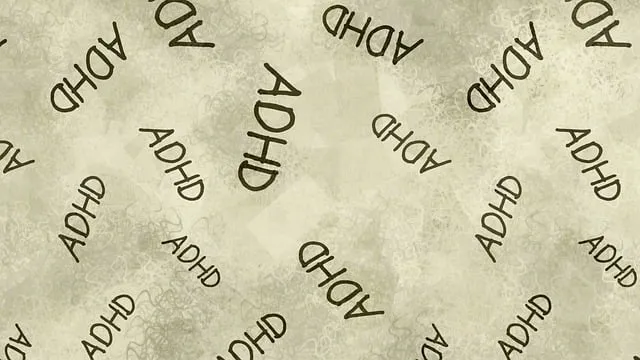Wheat Ridge Kaiser Permanente prioritizes inclusive mental healthcare through cultural sensitivity, ensuring personalized treatment for diverse patients. They achieve this by training staff in culturally competent practices, incorporating empathy-building exercises like Compassion Cultivation, and providing multilingual resources. Active listening, understanding cultural norms, and encouraging patient storytelling in simple language bridge cultural gaps. Tailored resilience-building approaches based on individual cultural contexts improve satisfaction and outcomes, making mental healthcare more accessible and effective for all, as exemplified by their focus on the Wheat Ridge Kaiser Permanente mental health appointment number.
In today’s diverse society, cultural sensitivity in mental healthcare is paramount. Understanding and respecting patients’ cultural backgrounds significantly impacts treatment outcomes. This article explores strategies for culturally competent practice at Wheat Ridge Kaiser Permanente, a leading provider of mental health services. We delve into how recognizing cultural nuances can enhance patient experiences, improve access to care, and ultimately foster more effective healing processes, ensuring every individual receives the best possible support during their mental health appointment number.
- Understanding Cultural Sensitivity: A Foundation for Inclusive Mental Healthcare
- The Impact of Cultural Background on Mental Health and Therapy
- Strategies for Culturally Competent Practice at Wheat Ridge Kaiser Permanente
- Enhancing Patient Outcomes: Practical Tips for Mental Healthcare Professionals
Understanding Cultural Sensitivity: A Foundation for Inclusive Mental Healthcare

Cultural sensitivity is a cornerstone in delivering inclusive mental healthcare. It involves understanding and respecting diverse cultural beliefs, values, and practices, ensuring that every individual receives care tailored to their unique background. At Wheat Ridge Kaiser Permanente, recognizing the importance of this aspect is reflected in their commitment to providing culturally competent mental health services. This means going beyond simply treating symptoms; it’s about creating a safe space where patients feel heard, understood, and empowered to share their experiences.
The foundation for such inclusive care starts with healthcare provider cultural competency training. Equipping professionals with the knowledge and skills to navigate cultural differences fosters effective communication strategies. This enables mental health practitioners to engage patients in meaningful conversations, assess their unique needs, and develop personalized treatment plans. Moreover, by addressing emotional regulation within a cultural context, providers can help individuals manage their emotions while respecting their cultural identities.
The Impact of Cultural Background on Mental Health and Therapy

Our mental health experiences are deeply influenced by our cultural backgrounds. This is significant in healthcare settings like Wheat Ridge Kaiser Permanente, where a diverse range of patients seek mental wellness support. When individuals from different cultural contexts enter therapy, their unique perspectives and beliefs shape how they perceive and express mental distress. For instance, some cultures may emphasize collective suffering, while others prioritize individual resilience. These variances can impact the way patients describe their symptoms, which in turn requires therapists to employ specialized communication strategies.
Understanding these cultural nuances is crucial for building trust and fostering effective therapy sessions. Compassion Cultivation Practices, for example, have shown promise in enhancing therapist-patient relationships by promoting empathy and understanding. By being attuned to these differences and adopting appropriate communication techniques, mental health professionals can provide more personalized care that respects each patient’s journey towards mental wellness, regardless of their Wheat Ridge Kaiser Permanente mental health appointment number.
Strategies for Culturally Competent Practice at Wheat Ridge Kaiser Permanente

Wheat Ridge Kaiser Permanente recognizes the importance of culturally competent practices in mental healthcare to ensure every patient receives personalized and effective treatment. They employ several strategies to foster an inclusive environment, reflecting the diverse communities they serve. One key approach is providing multilingual resources and staff members who can facilitate communication during mental health appointments at Wheat Ridge Kaiser Permanente. This initiative ensures patients from various linguistic backgrounds feel comfortable expressing their concerns and needs.
Additionally, the organization offers a range of programs designed to promote cultural sensitivity. These include self-awareness exercises tailored to different cultural contexts, helping healthcare providers understand and appreciate the unique perspectives of their patients. They also provide crisis intervention guidance that is culturally responsive, enabling staff to offer immediate support while respecting traditional healing practices. Such proactive measures contribute to building trust and fostering positive thinking within diverse communities seeking mental health services at Wheat Ridge Kaiser Permanente.
Enhancing Patient Outcomes: Practical Tips for Mental Healthcare Professionals

In the realm of mental healthcare, cultural sensitivity is paramount to enhancing patient outcomes. By embracing and understanding a patient’s unique cultural background, mental health professionals can tailor their approach, ensuring effective treatment and improved well-being. This involves incorporating practical tips such as active listening, where healthcare providers pay close attention to patients’ verbal and non-verbal cues, fostering an environment of trust and open communication. Additionally, professionals should educate themselves on cultural norms related to emotional expression and regulation, enabling them to provide culturally responsive care that respects individual differences.
Wheat Ridge Kaiser Permanente’s mental health appointment number serves as a gateway for individuals seeking support. Mental healthcare professionals can optimize these appointments by employing communication strategies that bridge cultural gaps. Encouraging patients to share their stories in their own words, using simple and clear language, and avoiding assumptions based on stereotypes are effective steps. Moreover, resilience building should be a key component of treatment, empowering patients with coping mechanisms tailored to their cultural contexts. Such approaches not only improve patient satisfaction but also lead to more positive outcomes, transforming mental healthcare into a vibrant symphony of inclusive care.
Cultural sensitivity in mental healthcare is no longer a consideration, but an imperative. As diverse communities continue to grow, it’s crucial that professionals like those at Wheat Ridge Kaiser Permanente prioritize culturally competent practices. By understanding the impact of cultural background on mental health and implementing strategies that foster inclusivity, they can significantly enhance patient outcomes. For those seeking support, making a mental health appointment at Wheat Ridge Kaiser Permanente can be a transformative step, one that acknowledges and respects their unique cultural tapestry.






